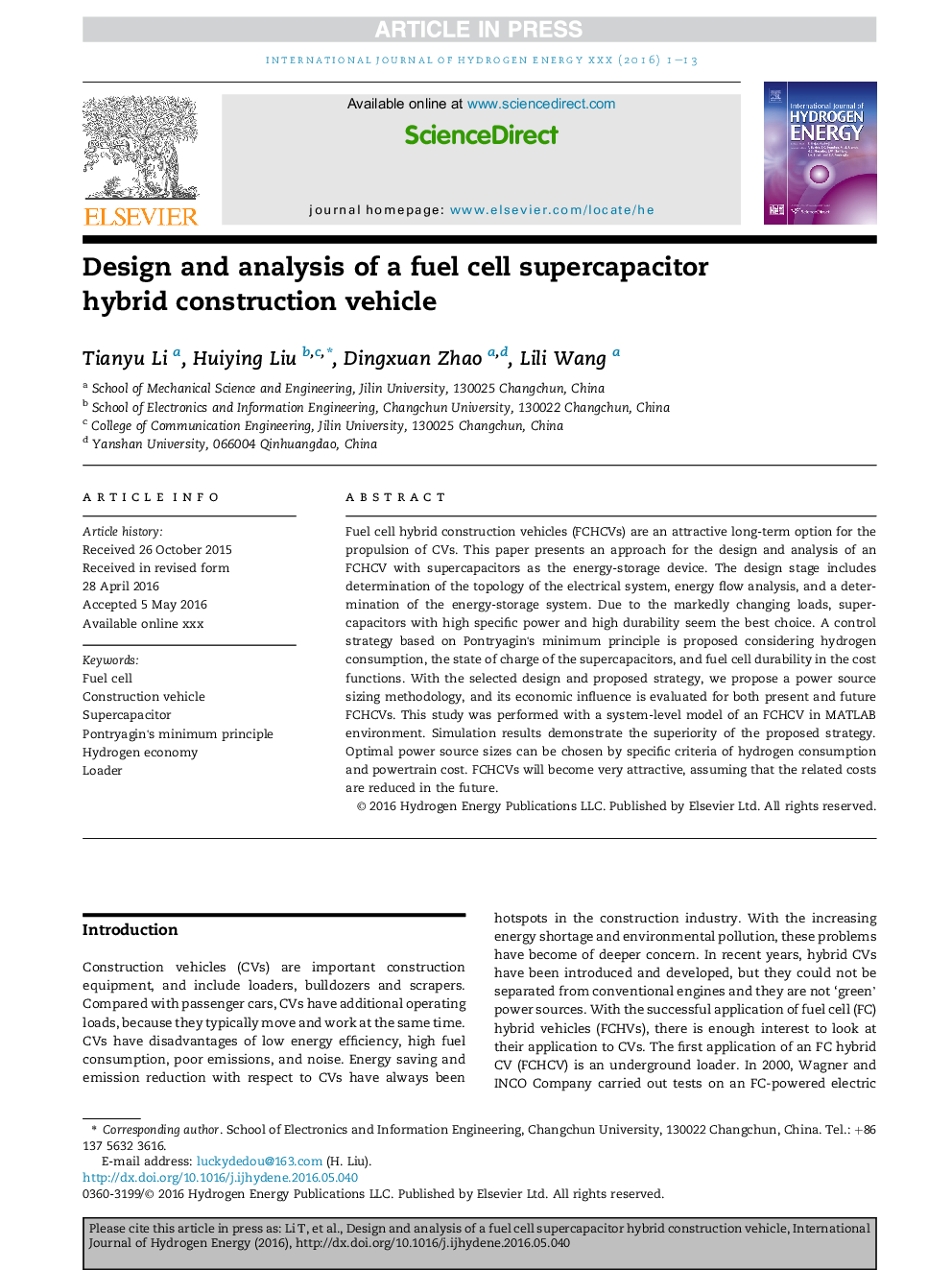| Article ID | Journal | Published Year | Pages | File Type |
|---|---|---|---|---|
| 7710289 | International Journal of Hydrogen Energy | 2016 | 13 Pages |
Abstract
Fuel cell hybrid construction vehicles (FCHCVs) are an attractive long-term option for the propulsion of CVs. This paper presents an approach for the design and analysis of an FCHCV with supercapacitors as the energy-storage device. The design stage includes determination of the topology of the electrical system, energy flow analysis, and a determination of the energy-storage system. Due to the markedly changing loads, supercapacitors with high specific power and high durability seem the best choice. A control strategy based on Pontryagin's minimum principle is proposed considering hydrogen consumption, the state of charge of the supercapacitors, and fuel cell durability in the cost functions. With the selected design and proposed strategy, we propose a power source sizing methodology, and its economic influence is evaluated for both present and future FCHCVs. This study was performed with a system-level model of an FCHCV in MATLAB environment. Simulation results demonstrate the superiority of the proposed strategy. Optimal power source sizes can be chosen by specific criteria of hydrogen consumption and powertrain cost. FCHCVs will become very attractive, assuming that the related costs are reduced in the future.
Related Topics
Physical Sciences and Engineering
Chemistry
Electrochemistry
Authors
Tianyu Li, Huiying Liu, Dingxuan Zhao, Lili Wang,
